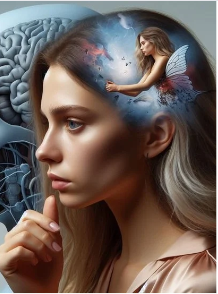Mood Disorder, Personality Disorder
The majority of the people face melancholy or frustration on occasion. They may show signs of being gloomy. “A mood disorder, on the other hand, is distinct in that it affects a person’s everyday emotional condition”. Thus, mood disorders are psychiatric illnesses characterized by emotional abnormalities defined by episodes of depression, such as profound sorrow, mania, severe joy or excitement, or both. Mania and sadness are the opposites of mood illnesses.
The Association

The link between certain psychological disorders and mental illnesses is common in clinical disparity assessment and mental nosology. Nonetheless, these ailments share many subjective characteristics and frequently co-occur; it can be hard to tell when treatment of either disorder is adequate for describing and analyzing a patient’s psychiatric illness and impairments and when treatment of each category of alcohol dependence is more insightful.
Although some theorists and researchers have maintained that psychological problems are merely more protracted variants of depressive disorders until DSM-III.
The DSM compressive approach has classified these distinct types of diseases on distinct axes. Therefore, diagnostic norm suggests that at least some parts of the illnesses are unique in certain circumstances, supporting their combined classification.
The DSM-V

The DSM-V does not include psychological issues along the same diagnosis axis as psychiatric conditions. Nonetheless, the differences between categories may become even more challenging, and new diagnosis rules to facilitate clinical assessment will be required.
Three factors are essential for a counsellor to understand the effective treatment of a personality disorder client. Moreover, these factors include; the client’s specific disorder. The seriousness of the client presenting the symptoms of the disorder and then the client’s situation in their life.
A group of medical professionals should do the client’s treatment to ensure the client’s unique needs, psychiatric and medical needs. Thus, the team should consist of professionals like a primary physician and a psychiatrist, a psychiatric nurse, a counsellor or psychologist, a social worker and a pharmacist.
Personality Disorder

Personality disorders last for a very long period, so that’s why medical professionals treat that personality disorders. The client should treat the disorder for several months or years. If a client has moderate and under control symptoms, the client might be treated only by the primary attention physician, therapist, or psychiatrist.
It also is crucial for a therapist to understand that individuals with personality issues are familiar with healthcare settings; treating them is frustrating and difficult. Besides, if different personalities of patients tend to elicit intense feelings in professionals, resulting in challenging doctor-patient interactions and compromising the task of assessing and managing medical and psychological diseases.
Remarks
Knowing the basic features of such mental diseases can assist clinicians in identifying, diagnosing and treating patients. Despite their persistent challenges in interacting with physicians and the medical treatment system. Moreover, the goal of managing clients’ psychiatric care is to build a working contact with them to deliver the most efficient service possible.
PHOTO CREDIT: GOOGLE.COM
WRITTEN BY: AMEDICC.COM